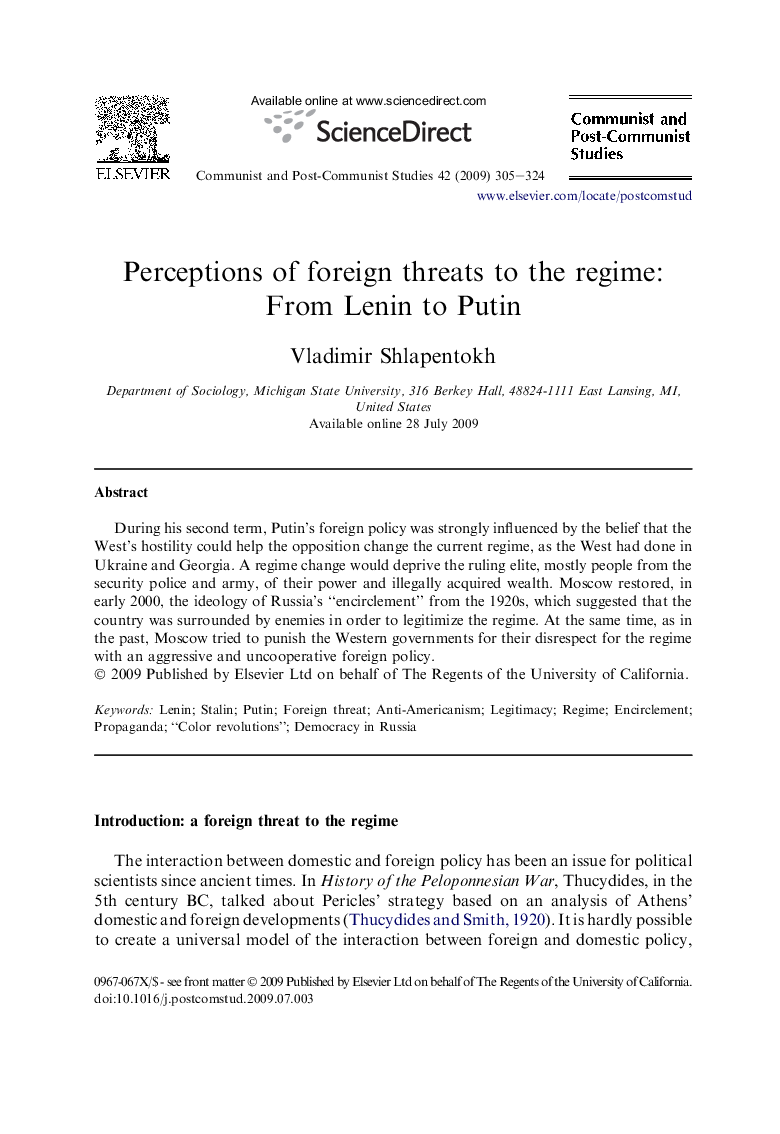| Article ID | Journal | Published Year | Pages | File Type |
|---|---|---|---|---|
| 1046716 | Communist and Post-Communist Studies | 2009 | 20 Pages |
Abstract
During his second term, Putin's foreign policy was strongly influenced by the belief that the West's hostility could help the opposition change the current regime, as the West had done in Ukraine and Georgia. A regime change would deprive the ruling elite, mostly people from the security police and army, of their power and illegally acquired wealth. Moscow restored, in early 2000, the ideology of Russia's “encirclement” from the 1920s, which suggested that the country was surrounded by enemies in order to legitimize the regime. At the same time, as in the past, Moscow tried to punish the Western governments for their disrespect for the regime with an aggressive and uncooperative foreign policy.
Related Topics
Social Sciences and Humanities
Social Sciences
Development
Authors
Vladimir Shlapentokh,
